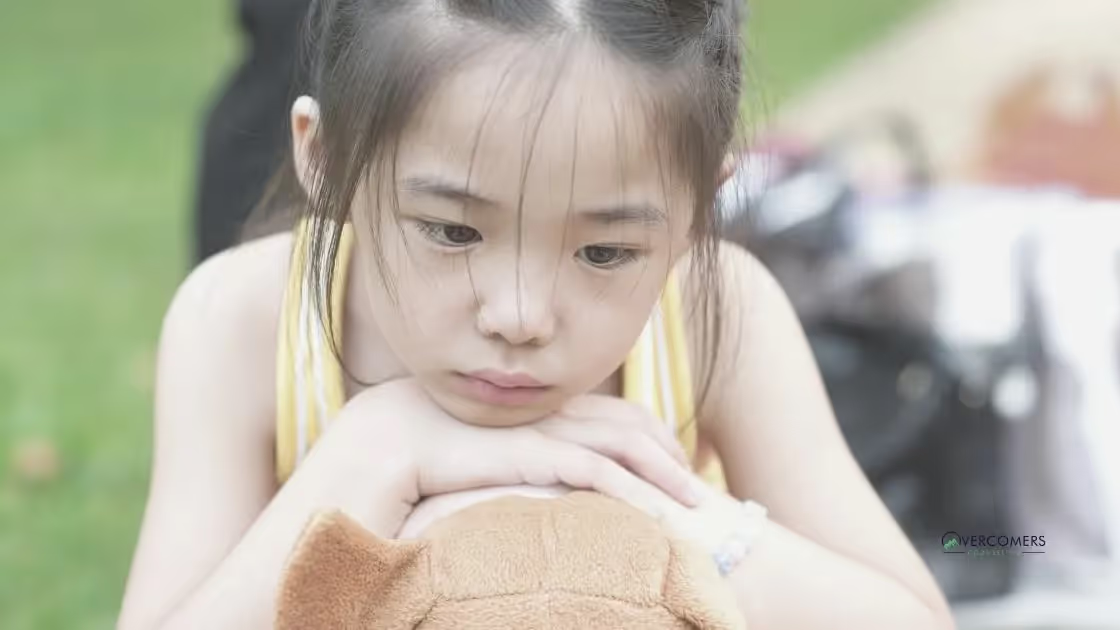When you notice your child loves to blame others for any failure or misfortune they experience, they might be suffering from a victim mentality. Your duty...

When you notice your child loves to blame others for any failure or misfortune they experience, they might be suffering from a victim mentality. Your duty as a parent is to train your child to take responsibility for their actions. Thus, it is essential to learn how to snap your child out of a victim mentality. Most times, people with a victim mentality are not good problem solvers. Also, when you look closely, your child probably blames others for their problems because it is easier to push blame than solve them. Learning problem-solving skills at a young age would help to improve your child's mental well-being and assertiveness. Similarly, children who love to play victim usually have a pessimistic approach to life. While it is usual for some children to be more optimistic than others, excessive pessimistic behavior can be dangerous.
However, optimism is an attitude every child needs for their mental development and well-being. Teaching your child that life can be favorable to them would curb their victim mentality. It would also help to teach your child how to help others. Children with a victim mentality would mostly think they have life worse than their peers. However, when you lead them to help others, they can see that people have problems and their problems are not the biggest in the world. If your child has a victim mindset, it is best to give them all the necessary child support to curb this problem. Below are some ways to snap your child out of a victim mentality.
Problem-solving is an essential life skill for everyone, so it is best to teach your child from a young age. When your child learns how to solve problems, they attack the problem without blaming others for it. Teaching your child how to solve problems is an excellent way to snap your child out of a victim mentality. Kids face issues daily, and you can teach your child how to solve these problems by identifying the issues first. Having recognized the problem, you can proceed to analyze the situation and find solutions to the problem. For instance, if your child is facing academic problems, you should first identify the exact courses giving them issues. After this, you can see their teacher about it or enroll them in extra lessons for those courses.
Also, it is essential to let your child form their experiences and learn from them. You can do this by giving your child the freedom to solve their problems themselves. Allowing your child to solve their problems and make mistakes will teach your child how to improve and encourage self-development. Furthermore, allowing your child to face the natural consequences of their actions would improve their problem-solving skills. Lessons from bad decisions would easily stick in the memory of your child. However, if your child encounters problems beyond their problem-solving capacity, don't hesitate to help. Watching you solve a problem will also serve as a learning experience for them.
When your child has a positive outlook on life, he believes that he is not always at the receiving end of the bad things that happen in life. Optimists have a way of seeing problems as opportunities. Thus, teaching your child optimism is an excellent way to snap your child out of a victim mentality. You can have your child engage in physical exercises to improve their optimism. Studies have shown that engaging in activities makes you physically fit and builds resilience and optimism. ]You can also train your child in meditation. Meditation helps to cleanse your mind of negativities and build a sense of control.
Children tend to fixate on their negative experiences. Hence, having them journal their positive experiences would go a long way in improving their optimism. Aside from the joyous aftermath of positive journaling experiences, writing about your good experience improves your day. Generally, optimists believe that life has been fair to them. Hence, it is unlikely for an optimist to possess a victim mentality. Teaching your child optimism reduces his chances of playing "victim."
Studies have shown that acts of intentional kindness make you feel better about yourself. Children who believe they are victims do not feel good about themselves. Teaching children about helping others to feel good about themselves is an intelligent way to snap your child out of a victim mentality. Helping others puts you in a position to be aware of the problems others are facing, enabling you to understand that you are not the only one facing challenges. You can nurture this character trait in your child by frequent visits and gifts to the orphanages with your child. Also, you can involve your child in a fundraising project.
You can also make them participate in a kindness day or week. When your child is familiar with things like this, they know life is not only about them. Everyone has their struggles, and their own is not the worst. Also, your child can learn kindness from you by being a helpful person. Children often look up to their parents as models, so being a kind person would help your child to be kind. Frequently assisting others in the presence of your child would make your child help others by reflex.

Forgiveness is a vital trait that is important to have a happy life. Your child might feel victimized because someone wronged them and refused to apologize. To snap your child out of a victim mentality, you must teach them to forgive others and themself. It is essential to teach your child that the first step of forgiveness is acknowledging their pain or sadness. After this, they can consider how the person hurt them and what hurts them the most. Recognizing this makes it easier to forgive and let go. When your child acknowledges their hurt, you can encourage them to admit that they cannot change what has happened and encourage them to forgive the other party whether or not the person apologized. Once your child cultivates the habit of forgiving others, it becomes harder to fixate on being a victim.
Similarly, you can also train them to forgive themselves when they perform below expectations. Let them know that they are not above mistakes and it is okay to try again. It would go a long way in freeing them of the grip of a victim mindset.
People who play victim struggle with taking responsibility for their actions. Instead of admitting they are at fault, they prefer to blame others and claim a victim. Being responsible for little actions would help to snap your child out of a victim mentality. We imbibe most of our values at a young age, and it is good to train your child on responsibility from a young age. If your child is affected by their academic performance in school, you can encourage them to take responsibility by putting more effort into studying. Devise a study plan with them and encourage them to stick to the plan. Similarly, it is okay to let your child feel the effects of their actions.
Doing this would let them understand how their actions will cause inevitable consequences and stop them from blaming others for their misfortunes. As a parent, it is normal to desire to help your child at the slightest inconvenience. However, this would make the child feel they can get away with any of their actions. So, it is best to let them take responsibility for their actions, regardless of how small they are .
Idea
Explanation and Example
Encourage Personal Responsibility
Teach kids to own their actions. For example, say: 'I understand it was unfair, but let's look at what we can do differently next time.' This helps stop victim mentality.
Validate Their Feelings
Acknowledge their pain without feeding self pity: 'It's okay to feel upset about what other kids said. Let's talk about how it made you feel.
'Promote Problem-Solving Skills
Help them find solutions rather than focusing on the problem: 'What can we do to make this situation better?' This empowers them to problem solve and build self esteem.
Compare to Broader Life Experiences
Explain that unfair circumstances happen to all human beings: 'Everyone faces challenges in life, even adults. It's part of growing up and learning.'
Model Positive Behavior
Kids learn by observing. Show them how to handle negative thoughts and bad behavior calmly. Say: 'When I face a tough situation, I try to stay positive and work through it.'
Discuss the Role of Personal Actions
Emphasize that everyone is responsible for their own actions: 'Even though it feels like others are against you, you can control your response and make the best out of it.'
Build Empathy and Understanding
Help them understand others' perspectives: 'Maybe the other children didn't mean to hurt your feelings. Try to see their side too.'
Address Past Traumatic Experiences
Talk about how past issues like a broken family don't define their future: 'You've been through a lot, but you have the strength to overcome these challenges in your own life.'
Avoid Enabling the Victim Role
Don't let them stay in a victim role: 'It’s important to move past this and not dwell on it. You're strong and capable of handling life's difficulties.'
Teach Perspective on Life's Challenges
Help them understand that painful situations are part of life: 'Everybody faces tough times. What matters is how we handle them and learn from the experience.'
Overcomers Counseling is a great choice to help parents navigate these communication approaches. They specialize in understanding the complexities of a child's life and ensure that parents aren't the only person their child immediately turns to for support. With a focus on teaching kids effective coping mechanisms, Overcomers Counseling empowers families to foster healthy, open communication and resilience.
A victim mentality is not the best for a child's mental well-being, and it is necessary to provide the necessary support for your child to help them overcome this mindset. To snap your child out of a victim mentality, you should teach them to be optimistic, help others, solve problems, be forgiving, and take responsibility for their actions.
https://www.verywellfamily.com/how-to-curb-your-childs-victim-mentality-1094930
https://www.verywellfamily.com/teach-kids-problem-solving-skills-1095015
https://blog.campchampions.com/blog/how-to-teach-kids-optimism
https://www.pbs.org/education/blog/9-tips-for-teaching-kindness-in-the-classroom
Help your child by providing support and guidance, using positive language, highlighting the progress they have made, breaking down the challenge into smaller steps, and motivating them with positive affirmations.